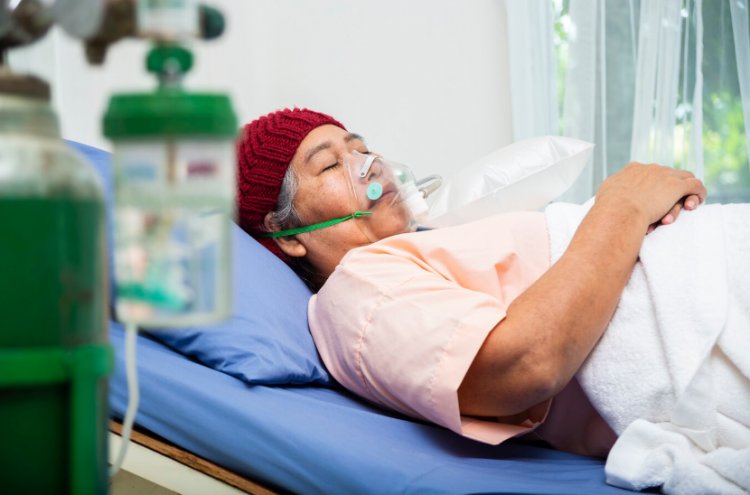Healing with Ozone: A Journey into the World of Therapeutic Oxygen
Ozone therapy is a form of alternative medicine that utilizes ozone gas for therapeutic purposes. Ozone, a molecule composed of three oxygen atoms (O3), is a highly reactive form of oxygen. While ozone therapy has been practiced for over a century, its popularity has surged in recent years due to its potential health benefits and minimal side effects. This article aims to provide an overview of ozone therapy, including its mechanism of action, applications, and safety considerations.

Mechanism of Action
The therapeutic effects of ozone therapy are primarily attributed to its ability to stimulate oxygen metabolism and modulate the immune system. When ozone is introduced into the body, it reacts with various biological molecules, producing reactive oxygen species (ROS) and lipid peroxidation by-products. These reactive molecules trigger a cascade of biochemical reactions that promote tissue oxygenation, increase antioxidant defense mechanisms, and enhance cellular repair processes. Additionally, ozone therapy is thought to have antimicrobial properties, making it effective against bacteria, viruses, and fungi.
Applications
Ozone therapy has a wide range of applications across various medical disciplines, including:
-
Pain Management: Ozone injections can alleviate pain associated with musculoskeletal disorders, such as osteoarthritis, herniated discs, and tendon injuries. Ozone acts as an analgesic and anti-inflammatory agent, providing relief from chronic pain.
-
Dental Care: Ozone gas is used in dentistry to disinfect and treat oral infections, such as periodontitis and root canal abscesses. Ozone therapy can help eliminate bacteria and promote tissue healing in the oral cavity.
-
Skin Conditions: Ozone therapy is employed in dermatology to treat skin disorders like eczema, acne, and fungal infections. Ozone's antimicrobial properties help combat pathogens on the skin's surface, while its oxygenating effects accelerate wound healing and tissue regeneration.
-
Immune Support: Ozone therapy is believed to enhance immune function by stimulating the production of cytokines and increasing the activity of white blood cells. It may be used as an adjunctive treatment for immune-related conditions, such as chronic infections and autoimmune diseases.
-
Detoxification: Ozone therapy is sometimes used as part of detoxification protocols to eliminate toxins from the body. Ozone can oxidize and neutralize toxins, heavy metals, and other harmful substances, facilitating their elimination through urine and sweat.
Safety Considerations
While ozone therapy is generally considered safe when administered by trained professionals, there are certain precautions and potential risks to be aware of:
-
Dosage Control: Ozone concentrations and dosages must be carefully controlled to prevent adverse effects, such as lung irritation or oxidative stress. Overexposure to ozone can cause respiratory symptoms and exacerbate lung conditions.
-
Contraindications: Ozone therapy may not be suitable for individuals with certain medical conditions, such as respiratory diseases, hyperthyroidism, or glucose-6-phosphate dehydrogenase (G6PD) deficiency. Pregnant women and individuals with ozone allergies should also avoid ozone therapy.
-
Administration Techniques: Proper administration techniques are crucial to the safety and effectiveness of ozone therapy. Qualified healthcare practitioners should undergo specialized training to ensure accurate dosing and minimize the risk of complications.
-
Potential Side Effects: While rare, side effects of ozone therapy may include headache, dizziness, nausea, and skin irritation at the injection site. These side effects are usually mild and temporary, resolving shortly after treatment.
Ozone therapy offers a promising approach to holistic healthcare, harnessing the therapeutic properties of ozone gas to promote healing and wellness. While further research is needed to fully understand its mechanisms of action and efficacy, many individuals have reported positive outcomes with ozone therapy for various health conditions. As with any medical intervention, it is essential to consult with a qualified healthcare provider before undergoing ozone therapy to ensure safety and suitability for individual needs.
Disclaimer:
The information provided in this article is for educational purposes only and should not be considered medical advice. If you have any health concerns or are experiencing symptoms, it is important to consult with a healthcare professional, such as a doctor or clinic, for proper diagnosis and treatment. Always seek the advice of your doctor or other qualified health provider with any questions you may have regarding a medical condition. Do not disregard professional medical advice or delay in seeking it because of something you have read in this article.
What's Your Reaction?





















